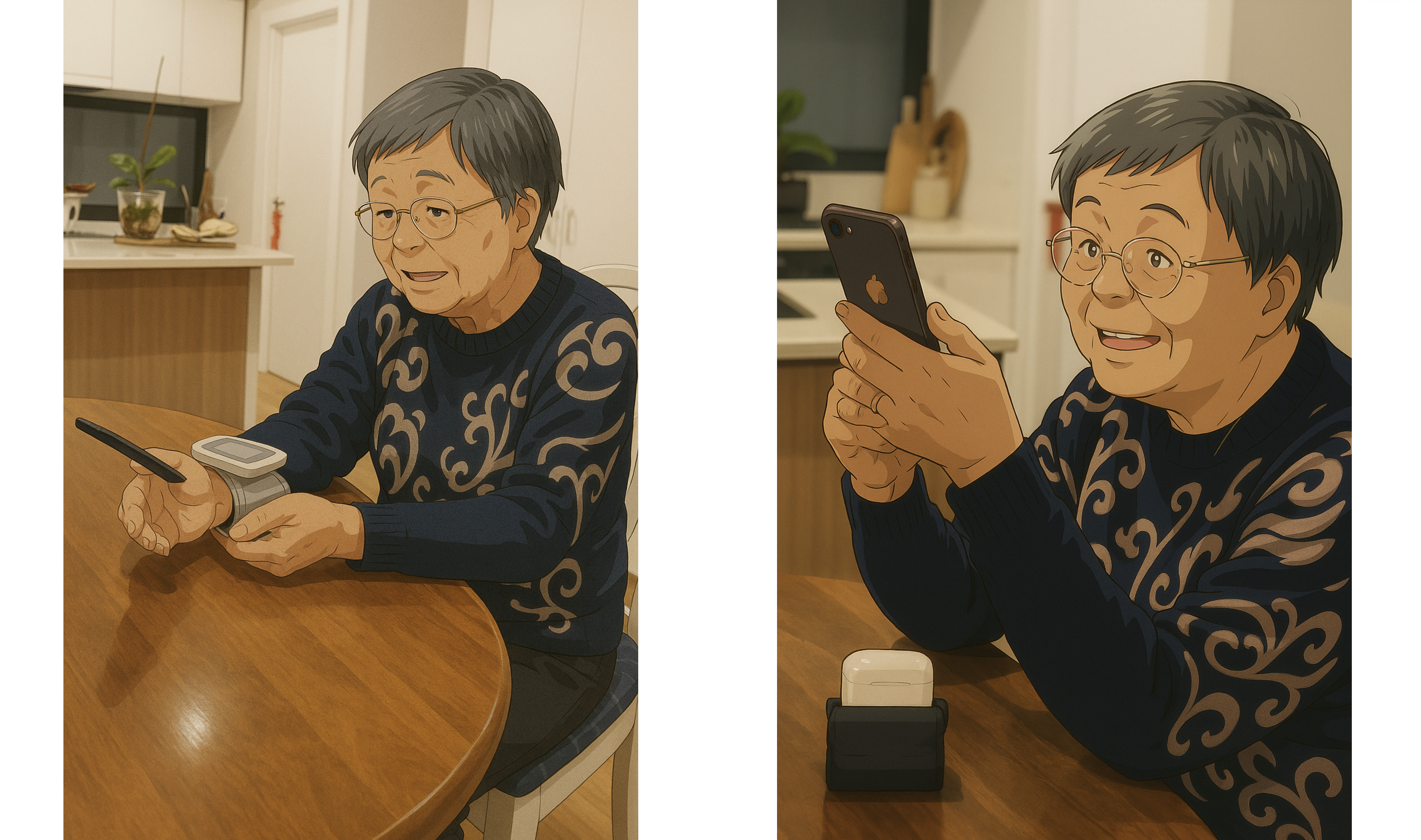Hello!
About me
I am currently a Research Fellow at the Opportunity Technology Lab (OTL) under Prof Charmine E. J. Hartel, where I focus on designing inclusive, user-centred technologies that empower vulnerable and underserved communities. My work bridges software engineering, human-computer interaction, and empirical research methods, with a commitment to addressing social inequities through responsible and participatory technology design.
My research interests span across a range of domains — from healthcare and accessibility to digital inclusion. I am particularly interested in how we can develop technologies that respect diverse communication styles, cognitive differences, and lived experiences. Through close collaboration with community organisations, people with disabilities, and interdisciplinary teams, I aim to ensure that technological solutions are not only functional but equitable, inclusive, and grounded in real-world contexts. This commitment to accessibility and inclusion extends beyond my research - it informs how I communicate and present my work.
I recently completed my PhD in the HumaniSE lab ![]() , under the supervision of Prof John Grundy, Dr Hourieh Khalajzadeh, Dr Anuradha Madugalla and Dr Humphrey O. Obie, as part of an ARC Laureate project focused on the human aspects of software engineering. My PhD focus on designing adaptive user interface for mobile health application targeting chronic diseases. I applied user-centred design principles and empirical research methods to explore how mobile health tools can dynamically adapt to user needs, improve engagement, and support long-term self-management.
, under the supervision of Prof John Grundy, Dr Hourieh Khalajzadeh, Dr Anuradha Madugalla and Dr Humphrey O. Obie, as part of an ARC Laureate project focused on the human aspects of software engineering. My PhD focus on designing adaptive user interface for mobile health application targeting chronic diseases. I applied user-centred design principles and empirical research methods to explore how mobile health tools can dynamically adapt to user needs, improve engagement, and support long-term self-management.
News
- Sep 2025 MAST SEED Funding Success.
- Aug 2025 PhD conferral.
- Jul 2025 MAST SEED Funding Success.
- Jul 2025 I joined the OTL as Research Fellow.
Research areas
Inclusive Technologies for Equity and Social Participation Creating tools and systems that promote access, opportunity, and empowerment for underserved populations. Human Aspects in Software Engineering (SE) Explores how people — both developers and end users — influence and are affected by software systems. It recognizes that software is not just technical; it is deeply social, emotional, and contextual. Human Aspects in Requirements Engineering (RE) of AI Software Understanding and integrating human values, expectations, and limitations into the process of specifying what AI systems should do. This area recognises that AI systems often behave in probabilistic, opaque, or adaptive ways, which introduces unique challenges for aligning system behaviour with human needs, trust, and fairness. Accessibility Research Designing, developing, and evaluating digital technologies that are usable and inclusive for people with disabilities. It aims to ensure that technology supports equity, autonomy, and dignity for all users — regardless of ability. Research Methods in Empirical SE Investigates how different research methods are applied, adapted, and validated in the field of Empirical Software Engineering (ESE). Explore the methodological foundations, usage patterns, and challenges involved in conducting empirical research within SE. Digital Health Examining how digital platforms and tools transform healthcare delivery, patient engagement, and provider reputation in virtual settings.
Selected publications
Wei Wang, John Grundy, Hourieh Khalajzadeh, Anuradha Madugalla, and Humphrey O. Obie. 2025. Designing Adaptive User Interfaces for mHealth Applications Targeting Chronic Disease: A User-Centered Approach. ACM Trans. Softw. Eng. Methodol. 1, 1 (June 2025), 56 pages. https://doi.org/10.1145/3731750
[PDF] [Abstract]Wei Wang, Hourieh Khalajzadeh, John Grundy, Anuradha Madugalla, and Humphrey O. Obie. “Adaptive user interfaces for software supporting chronic disease.” In Proceedings of the 46th International Conference on Software Engineering: Software Engineering in Society, pp. 118-129. 2024.
[PDF] [Abstract]Wei Wang, Hourieh Khalajzadeh, John Grundy, Anuradha Madugalla, Jennifer McIntosh, and Humphrey O. Obie. “Adaptive user interfaces in systems targeting chronic disease: a systematic literature review.” User Modeling and User-Adapted Interaction 34, no. 3 (2024): 853-920.
[PDF] [Abstract]Wei Wang, and Libo Liu. “Investigating the impact of social support embedded in online consultation on physicians’ online reputation: The moderating role of media capabilities.” (2022).
[PDF] [Abstract]
Where it starts…
 My grandma’s journey with chronic disease exposed a critical flaw in healthcare software: systems designed for clinical efficiency often fail those they aim to serve. As I witnessed her struggle with applications that disregarded her declining vision, cognitive fluctuations, and physical limitations, I recognized how even well-intentioned technologies can alienate vulnerable users. These observations now fuel my research in Human Aspects of Software Engineering and Accessibility Research. Her experience taught me that truly human-centered design must go beyond usability checklists to address what matters most: preserving dignity in vulnerability. This commitment drives my work to redefine quality in software engineering: not just defect-free code, but code that preserves dignity through every interaction.
My grandma’s journey with chronic disease exposed a critical flaw in healthcare software: systems designed for clinical efficiency often fail those they aim to serve. As I witnessed her struggle with applications that disregarded her declining vision, cognitive fluctuations, and physical limitations, I recognized how even well-intentioned technologies can alienate vulnerable users. These observations now fuel my research in Human Aspects of Software Engineering and Accessibility Research. Her experience taught me that truly human-centered design must go beyond usability checklists to address what matters most: preserving dignity in vulnerability. This commitment drives my work to redefine quality in software engineering: not just defect-free code, but code that preserves dignity through every interaction.
I acknowledge the Woiwurrung (Wurundjeri) and Boon Wurrung Peoples of the Kulin Nations as the traditional custodians of the land upon which we live, work and learn. I would like to show my respect to Elders past and present. Sovereignty was never ceded.
